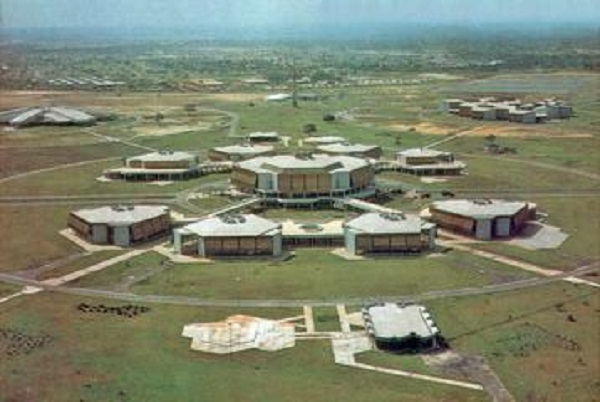NPA’s Electronic Call-Up System (ETO): Prospects, Challenges and The Way Forward
By Kingsley Anaroke, FCIPDM

Transportation and traffic challenges, particularly traffic congestion, delays, parking spaces difficulties, environmental pollution, among others, which started manifesting in Lagos since the early 1980s have reached an abominable dimension in recent years..
This led to decades of infrastructure rot and near zero maintenance culture as well as neglect.
Annual budgets are made on building new infrastructure without provision for maintenance budget.
Pre-ETO Port System: An Overview
Consequently, this obvious criminal neglect made Nigerian ports across the country, particularly those in Lagos casualties of the rot. The Lagos Port Complex (LPC),the premier port and the largest, which is the mother port and has given birth to over six ports in a stretch of decades, became the tattiest with shameful attendant traffic chaos.
The road to the port established in 1913 by the colonial government has remained same despite the increasing cargo throughput, human and vehicular traffic which evidently overstretched the capacity of the inelastic infrastructure.
Following massive growth and development over decades with siting of over 30 petroleum product tank farms in Apapa, and the port concession in 2005/2006 which gave away vehicle holding bays inside the terminals, thousands of articulated vehicles and petrol tankers created gridlocks on the access road in the past few years.
This traffic menace necessitated presidential intervention with the signing of an Executive Order on Ease of Doing Business at the port and the visit of acting President, Prof. Yemi Osinbajo(SAN) to the launching and subsequent inauguration of a Presidential taskforce to clear the traffic mayhem.
Recall that between 2017 and 2019, the Apapa traffic shut down the port with a repulsive effect on the economy. The queue of tankers and articulated vehicles had extended from Apapa to Onipanu on the Ikorodu Expressway, and along the Eko and Ijora bridges, taking the drivers about 40 days and 40 nights to complete their journeys of going into ports to either discharge their containers, commodities or take them out
The traffic situation was compounded by the road reconstruction and rehabilitation being executed by the NPA, in collaboration with Flourmills of Nigeria and Dangote Industries, stretching from the Area B Police Station and the Apapa Port gate, along Warehouse road.
Negative Effect On Business
Property values in Apapa tumbled significantly with owners and tenants abandoning offices and residential buildings for other areas.
At the peak of the truck gridlocks, the cost of transportation of containers within the Lagos metropolis and its environs was in excess of N1.2 million as against N250,000 before gridlock. At this point, an interning panacea was inevitable.
Emergence Of ETO
The Electronic Call -up system, a digital application technology designed for truck booking to ease traffic flow within the Apapa port corridor was inaugurated by the Nigerian Ports Authority (NPA) on February 27, 2021.
The Electronic Call-up project executed by a technology company (Messrs. Trucks Transit Parks Ltd (TTP)) hired by NPA was built on collaboration with the Lagos State government, which provided the enforcement backbone.
The coming of Eto had followed modal interventions by NPA.
· Liberalisation of barge movement on the waterways through licensing Barge operators which allows cargo evacuation from port terminals and led to a reduction in the number of trucks on the road corridor.
· Empty container policy, requiring shipping lines in the container handling space, to build holding bays for at least 50-65 per cent of their monthly landed containers and removal of at least a 80 per cent equivalent in empties or laden export in return voyages.
· 29 satellite parks were approved to ensure that trucks coming to do business in the port are properly profiled and verified before accessing the port. Out of the 29 parks, about eight reportedly met the required standards, which include installation of bollards, CCTVs, automated gate systems and relevant IT equipment.
The enforcement regime that followed the harmonized structure reduced the gridlock significantly, making the take off of the Eto Call-up System somewhat seamless.
Prospects
Does the Electronic Call-up system have the prospect of resolving the cargo evacuation problem in the Apapa port? NPA had made a bold claim that Eto has reduced the Apapa gridlock by 80 per cent. How? The platform has successfully facilitated 1.6 million articulated port-bound and non-port-bound trucks in two years.
Managers of the platform also claimed it had contributed significantly to a massive reduction in the cost of moving cargo out of the Apapa and Tin-Can Island ports by 65 per cent.
Reduced traffic around the port corridors, resulting in a significant improvement in the average turnaround time for port-bound trucks from an average of 2 weeks to just 3 days.
Sanity returned to Apapa port with a daily truck count of about 830 on the average, while Tin-Can is counting about 456, also on the average.
The average amount that was paid by truckers at the peak of the gridlock for empties to access the port was between N150,000 and N200,000 per truck and this did not guarantee entry but now to go into the port using the ETO to call-up empty containers, only N15,000 is paid from a pre-gate location.
Data available also suggests that ETO yielded the sum of N34.4billion in the two years of operation using N21,500 truck booking call- up fee charged by TTP as basis of calculation.
Challenges
Although the electronic call-up system has had some impacts on the evacuation of cargoes from the ports, it has been trailed with criticism. Operators are divided on its impact in relation to its object clause and its revenue focus, while laying claim that it had worsen the traffic crisis along the port access road instead of addressing it. Expectedly, there have been accusations of corruptions of all sorts and bribery as well as insider manipulations facilitating extortion, racketeering and the consequent calls to scrap the platform by some trucking group.
Recently, NPA smashed an electronic call-up racketeering syndicate. It said it undertook an on-the-spot check of the MPS Pre-gate and discovered 249 fake vehicle plate numbers and 149 units of Minimum Safety Standard stickers.
The agency also said that further checks of the terminal led to the discovery of another 164 pieces of vehicle number plates and 133 pieces of MSS stickers that were not fixed on any truck in readiness to be deployed for proxy booking.
.Findings have shown that the current call-up system relies on manual processes, which can be slow and inefficient. For example, drivers have to exit their trucks to input their codes to open the barrier at the parks and port gates. The lack of advanced technology has grossly limited the effectiveness of the current call-up system.
So far, ETO is mired in controversy with an interesting creation of protagonists and antagonists. While the lead antagonist chose to be indicting and revealing, the chief protagonist is protective and testimonial- like yet deeply revealing.
The National President of the Council for Maritime Truck Unions and Associations (COMTUA), Mr. Adeyinka Aroyewun ,believes that the platform had shifted from problem-solving to revenue generation.
He said,“This caused the handlers to neglect the real issues and place their premium on the volume of vehicles they were able to book. The cost of booking was varied several times to increase revenue.
“Proposed infrastructure, such as barriers at satellite and pre-gatepark’s even after garage owner payments were not adequately provided.”
In contrast, the Secretary General of the Association of Maritime Truck Owners(AMATO), Mohammed Sanni, blames the resurfacing gridlock on compromised enforcement agents.. “It is important to set the record straight without bias and prejudice. It is not the Eto call-up system that failed or collapsed. Rather, it is the enforcement architecture that is supposed to ensure free flow of traffic for electronic calls to function efficiently that is compromised by unscrupulous elements of the security/traffic enforcement team.”
According to Sanni, “Eto releases trucks from pre-gates to the ports based on truck requests from the sea port terminals. By the time these trucks enter the roads, security/traffic operatives, hoodlums, and union thugs would intercept these trucks at multiple checkpoints on the roads for several days before allowing them to pass after collecting money from the drivers. The multiple checkpoints mounted by security/traffic operatives, hoodlums, and union thugs selling tickets to truckers not belonging to Road Transport Employers Association of Nigeria(RTEAN) and National Union of Road Transport Workers(NURTW) are the major factors frustrating efficient performance of Eto call up.”
“Before the coming of Eto, truckers used to pay up to N350,000 to access the port but under Eto call arrangement, you only book Eto call up at N21,500 for your truck from anywhere in the world without begging or knowing anybody to access the port within few days, unlike the pre-Eto period where you have to kiss some cabal boots and spend over a month trying to access the port with N300,000. Those that are overlooking the human factors interrupting the operation of Eto call up and passing vote of no confidence on Eto are doing so out of anger and frustration because the call system has rendered most of them jobless and irrelevant in the maritime trucking industry,” he added.
According to him, “They have lost all the privileges they used to enjoy before the coming of Eto call up. Eto call up has canceled the outrageous N300, 000 they used to charge for the truck to access the port. No trucker is coming to prostrate for them to gain access. They are doing everything possible day and night to blackmail and get Eto call- up system sacked to enable them to come back and make money from traffic anarchy to the detriment of Nigeria’s trade facilitation, ease of doing business, and seamless evacuation of cargoes from the Nigerian ports,” Sanni stated.
From this statement, it is obvious that the human elements that should have been facilitating the flow of traffic are the ones obstructing it with multiple checkpoints. It also presupposes that some associations and security outfits collect unauthorized levies from truckers on the port access roads, thereby creating another layer of gridlock and increasing the cost of haulage which defeats the objective of ETO.
The Way Forward
From the synthesis of divergent operational realities at hand, it is safe to conclude that ETO is a success to a large extent but remains a work in progress. NPA and TTP have to rethink the scalability of the ETO software,that is, being able to increase performance to meet the rising demand by automating more critical area of ETO operation to eliminate human contact.
To eliminate the gridlock caused by multiple checkpoints created by different unions, security and traffic operatives, as well as local council agents for collection of different levies after legitimate call-up, Federal Government should design an integrated payment system that will ensure that the payable fees for all the unions and other deserving groups are paid into the ETO account from where disbursements will be made to the various groups weekly or monthly.
For instance, a trucker could be levied N40,000 so that when TTP collects its N21,500 for call-up, N18,500 will be shared among the verified unions and security operatives, and agents. This requires undertaking a stakeholders’ mapping of the groups and verify the legitimacy and legality of each of them to earn the money.
Consequently, any union thug or security operative agent caught creating checkpoint on the road risks four years imprisonment after an instant trial by a mobile court that should be put in place.
Any trucker caught compromising any willing tool to take advantage of his colleagues on queue should be liable for four years imprisonment with the option of forfeiting his truck to government.
To back this proposition up with legislation, the electronic call –up system operates within the Apapa municipal jurisdiction as such all that is needed is to enact a Bye- Law or an Ordinance which is the responsibility of the elected Councilors to carry out to give it effect. Mobile courts are presided over by Magistrates.
In Conclusion, the leadership of NPA should license two more electronic call –up companies for competition and keep reviewing and improving the infrastructure and enforcement as well as prosecute officers or culprits in electronic call –up racketeering to deter others. I strongly recommend the use of mobile court to adjudicate ETO cases with measures of penalties capable discouraging fraud or cutting corners.
Kingsley Anaroke is the publisher of MMSPlus Newspaper. This paper was Presented at the Breakfast Meeting organized by Maritime Reporters’ Association of Nigeria (MARAN) on March 7,2024







